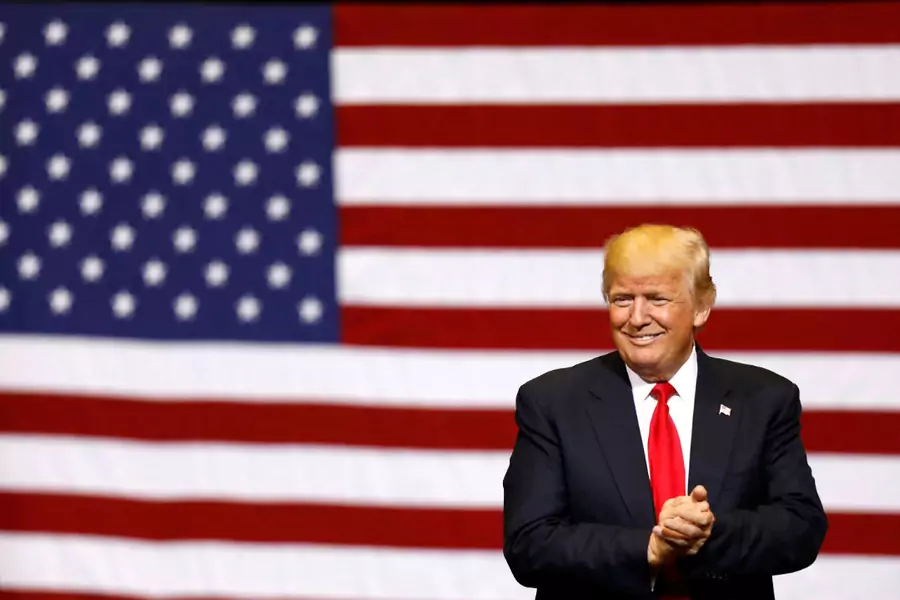Global Uncertainty in an Age of “America First”

The following is a guest post by Terrence Mullan, program coordinator of the International Institutions and Global Governance program at the Council on Foreign Relations.
Events over the past year—most notably Brexit and the election of President Donald J. Trump—threaten the open, liberal order and sow uncertainty into future prospects for global cooperation.
More on:
To consider how best to address this crisis in global cooperation, forty-two delegates from twenty-three countries gathered last month for the Council of Councils (CoC) sixth annual conference in Washington, DC. The CoC is composed of twenty-nine major policy institutes and is designed to facilitate candid conversation and consensus building among influential opinion leaders from both established and emerging nations. The meeting devoted individual sessions to the challenges of rebuilding domestic support for global trade, constructing multilateral rules in cyberspace, responding to North Korea’s nuclear ambitions, adapting EU institutions to new political realities, and mitigating turmoil in the Middle East.
Two broad themes emerged from the discussions: First, participants downplayed the recent surge of nationalism and populism, expressing confidence that anti-globalization sentiment and protectionist threats are only a temporary deviation away from deepening global integration. Second, notwithstanding that optimism, participants agreed that the Trump administration’s disavowal of international institutions and skepticism of global governance will complicate international cooperation in 2017 and beyond. Trump’s “America First” policy abdicates U.S. global leadership and endorses U.S. unilateralism at a time when the globalized world demands more sustained, coordinated action to mitigate global challenges like climate change, terrorism, and cyber conflict, which can climb any border wall, no matter how high.
Many participants pointed to the recent election of pro-EU French President Emmanuel Macron, as well as other electoral setbacks for far-right anti-EU parties, as evidence that the populist tide has crested. However, anti-establishment politicians have gained ground in many national legislatures and are more influential today than they were a decade ago in many countries. Acknowledging the need to respond to the underlying social and economic frustrations fueling populist movements, conference participants urged national leaders to be more forthright about the risks, not just the benefits, of trade liberalization, and to adapt domestic policies to specific country contexts to create more resilient, thriving, and equitable economies. Regarding the future of the EU, participants recommended prioritizing reforms that improved the security and livelihoods of its citizens, while acknowledging that disagreements about the direction and pace of integration would persist.
Beyond volatile domestic politics, rising geopolitical tensions and a lack of clarity on U.S. objectives and intentions complicates multilateral policy coordination. China, Iran, and Russia, among other countries, are filling the strategic vacuum first unlocked by the Obama administration and now blown wide open by the Trump administration. Russia has demonstrated aggressive behavior in Ukraine and Syria. The Middle East is engulfed in conflicts in Iraq, Syria, and Yemen, and Sunni-Shia proxy wars rage throughout the region. In Asia, denuclearizing the Korean Peninsula remains atop the world’s non-proliferation agenda, but misaligned priorities and geostrategic mistrust among the main powers, not least China and the United States, make a durable solution elusive. Meanwhile, geopolitical competition is increasingly intruding into cyberspace. Although the internet has become indispensable to billions, conflicting national positions on cybersecurity and cyber governance have prevented the emergence of international norms of state conduct.
International cooperation on these and other issues will depend on a willingness of major powers to compromise among their often divergent geopolitical objectives. Complicating this task, a growing number of world leaders lack confidence in the leadership of and partnership with the United States. As cases in point, leaders can now cite the U.S. withdrawal from international agreements such as the Paris Accord—a voluntary and flexible arrangement that many had expected to be a model for future multilateral cooperation—as well as the President’s begrudging reconfirmation of existing alliances. Both will hurt the U.S. standing in the world and complicate coordination with allies and partners.
More on:
Although participants detected a shift away from a U.S.-dominated order as already underway, they were uncertain about what alternative order might replace it. Some worried that U.S. abdication might exacerbate an ongoing international trend, leading others to withdraw from their own international commitments. Already, we have seen the United Kingdom’s referendum decision to leave the EU, Venezuela’s withdrawal from the Organization of American States, and the African Union’s urging that its members withdraw from the International Criminal Court.
Looking on the bright side, some participants suggested that the dramatic reorientation of U.S. foreign policy could presage an international “reset” that some countries have been demanding, paving the way for a reformed architecture of global governance that finally reflected the growing weight of rising economies like China, India, and Brazil. Might Trump’s “America First” policy provide an opportunity for emerging and developing countries to step up to the plate to fill the leadership role left by the United States? Some participants doubted that these rising players were either able or willing to step up and fill America’s shoes. At the end of the day, it remains difficult to imagine global agreement on important issues—from trade rules to norms for cyberspace—without a leading role for the United States. Nor were participants sanguine about the prospects for peace and stability in Northeast Asia and the Middle East with the United States on the sidelines.
For the full workshop discussion and policy prescriptions, view the workshop report here.
 Online Store
Online Store